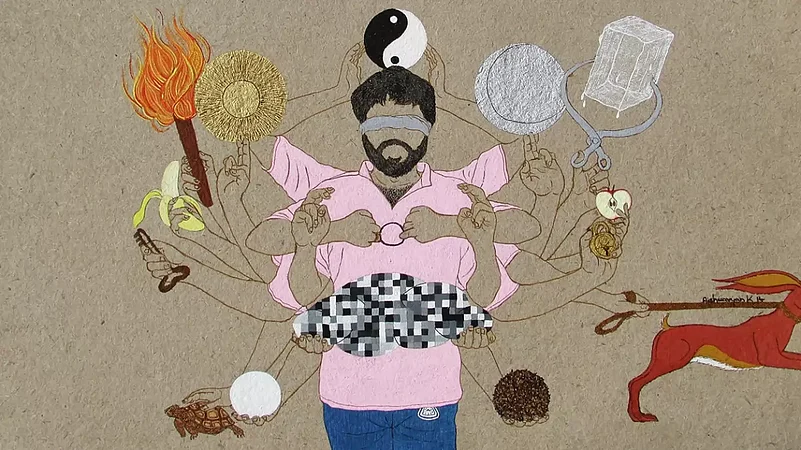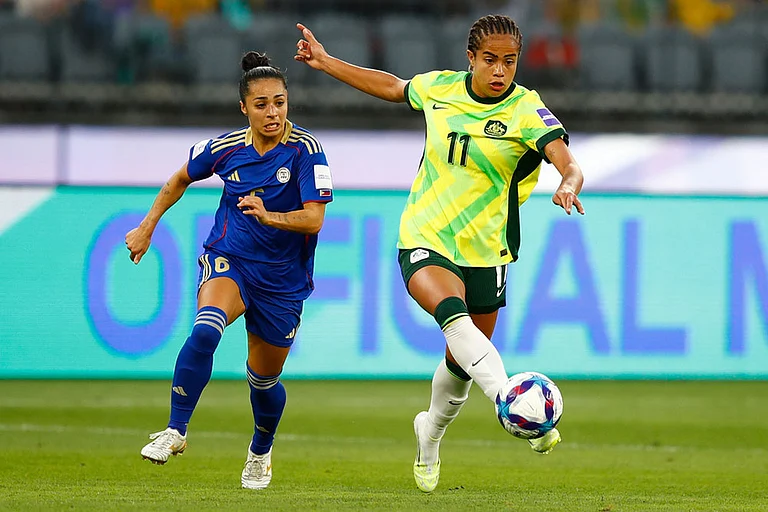As a 29-year-old Ezhava genderfluid-transgender, bisexual, polyamorous, panromantic and asexual person born in Kerala and brought up in Bengaluru, the world around tells me every day how they don’t understand me and I see their lack of interest in comprehending my struggles as a queer person living in India.
I’m a counselling psychologist and I see many queer clients who are not only dealing with Gender Dysphoria, Depression, Anxiety, Borderline Personality Disorder, Complex-Post-traumatic Stress Disorder etc., but also experiencing discrimination for being queer alongside having mental illnesses that makes it even more challenging to receive social support that can aid in their early recovery and healing process. Often, I hear of queer people losing their friends, jobs, relationships with close acquaintances and family when they come out, and how such stories forces others to stay in the closet. This form of invisible coercion is what we are all trying to fight.
This requires for one to have a feminist, anti-oppressive, anti-patriarchal and anti-capitalistic outlook. I am aware of how challenging it can be for my biological parents to acknowledge that I am queer, let alone accept my neuro-queer identity. They have been in denial ever since I’ve come out to them, which is why every time I visit them or call them, they ask me when I’m going to get married to a man, to which my answer has always been “no” and then follows the rant about how every uncle and aunty is bothered about me being unmarried. This sort of societal pressure gets to most parents with queer children which becomes a pressing issue for current and future queer couples or families who would face discrimination hence the pressure to disown queer children who then stay closeted. All of this leaves us with zero emotional, financial and social support while leaving us exposed to more abuse.
The agency to decide whom I marry and what factors it must entail must be my own decision, but as a child growing up in our culture, it was somehow reinforced time and again as I watched my friends and cousins get married, that my fate would be to marry someone of my parents’ choosing. Media representation of compulsory heterosexual marriages, love relationships and the idea of being more woman-like or man-like infiltrated my own ability to imagine love and relationships. I had been in enough relationships to understand my own flaws and other challenges that I lived with; I also understood that I require my partner to be patient, accepting, loving, and caring towards me, as I nurtured my relationship with my partner(s) in a way that could fulfill their needs as well as my desires as their partner. I always wanted a marriage that grew on a foundation of trust and compassionate affection for each other, but through therapy I discovered how much of my trauma had affected the way I perceived and responded to the world, and to the people I loved and cared for. Hence my choices in life have been queer in their own way.
I always sought the company of women in being able to hold space for me and rarely found men who could simply listen to me or empathise, and stop at that without having to solve my problems for me. Men who would explore their femininity and not believe it to be a form of emasculation, rather the integration of different parts of themselves that they embrace that are not rare but invisibilised. It takes a lot of courage in our culture, especially when men are constantly held up to unbelievable standards to prove their manhood, failing which not only deteriorates their mental wellness but also reinforces their need to fit in and gain acceptance by adopting toxic masculine traits that are somehow more appealing to society at large. I truly wonder, at what point did everyone lose sight of what life could mean to them? How did violence to the self and to others become easier than care and compassion? Can we be ‘unstuck’ from this state of wanting to conform?
I’m neurodivergent; I believed in everything that was taught to me in terms of values and virtues, truth-telling being one among them. My entire life was a lie, up until I gained the courage to walk out of unsafe spaces and figure out who I really was. The pandemic was the peak of this stage where ‘death’ was so close to all our lives. What was the point in living if I was continuing to lie to myself and to people around me? So, as I explored my gender and sexuality, so did my relational style change. By the end of 2020, I was sure that I was demisexual (falls on the spectrum of asexuality, where an individual experiences sexual feelings and attraction only after developing a close emotional relationship and not on the basis of first impressions, physical characteristics, etc) and polyamorous (a non-monogamous relational style), but I was already in a cis-het relationship that came to an end soon after because I had evolved as a person; I was no longer the person my boyfriend had known or fallen in love with.
I wish we had better sexual health curriculums in school that would be inclusive of gender, sexuality and queer identities. It would’ve helped me realize who I was much earlier in life, and I wouldn’t have been in spaces and relationships that didn’t align with my gender, sexuality, personality, interests and desires.
As a counselling psychologist, I have seen so many cases of extra-marital affairs and children witnessing intimate partner violence in their family that can cause trauma and mental illnesses, all of which is somehow excusable in our society but apparently a queer couple wanting to raise a child is somehow going to create more damage to the idea of what parents are supposed to be? Two queer people being in a legally recognised marriage is going to do the society harm, how? What is this glaring omission of all the failings, like orphaned, sexually abused children, those still being exploited, those dropping out of schools and therefore the damage being caused to these children of our country that has the highest population as every second passes by?
Also, the understanding that only two people who can procreate must be legally married is very flawed especially if our government doesn’t equip us with the resources and skills required to not just birth children but also raise them. How many students graduating from public schools and colleges are landing a job with 5 or 6-digit salary? What is the quality of our education, especially when it is gatekept for those coming from marginalised communities who have to work/walk an extra mile?
On the first day of the hearings in the Supreme Court on the same-sex marriage petitions, I was on my way to conduct fieldwork with a queer male friend, whom everyone thought to be my husband. Legalising same-sex marriage is going to make the society bring a shift in the way they perceive individuals, beyond binaries, amatonormativity (the assumption that all human beings pursue love or romance) and heteronormativity. I remember listening to the arguments being made and my heart sank but also raged in anger. The people belonging to the gender and sexually diverse community deserve better and we must be given the agency to choose to receive what is rightfully ours.
If I marry my female partner and later choose to surgically transition to become a transman, will my marriage be considered a same-sex marriage? As a polyamorous person, I have the capacity of sharing queer platonic and romantic relationships with multiple individuals, so which partner must I force myself to choose to be married to?
The on-going debate about the need for horizontal reservation that affects transgender people coming from various other intersections of marginalisation like the disability, Dalit-Bahujan-Adivasi community, etc., as it affects the psycho-social and economic well-being of the gender diverse people of our country cannot go unnoticed.
So yes, it’s going to take a lot of work, a lot of unlearning and re-learning. How determined are we as a nation? The youth of the nation is truly tired and can’t wait anymore. We are determined to work for the well-being of the people of the country. More importantly, resistance to change is understandable but change is inevitable. It’s time for a revolution that can truly help our nation stand out as a country that genuinely cares for the well-being of all its citizens, and not just the privileged.
(Views expressed are personal)
(This story appeared in the print as 'We’re Here, We’re Queer, We’re Tired')
Nidhra Purrple Sin Elai is a queer-poly-kink affirmative psychologist, drag artist, dancer and visual artist

















